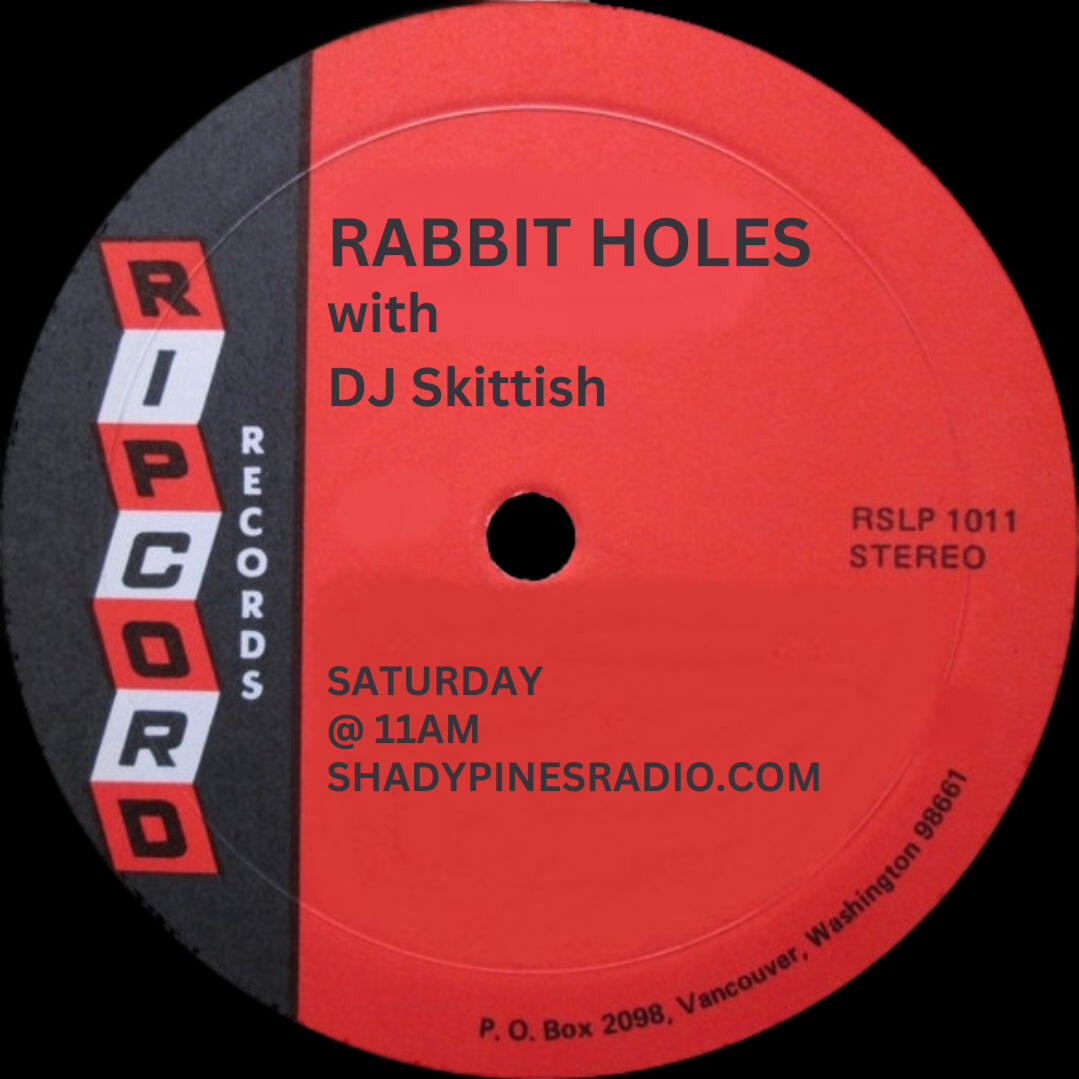DJ Skittish
About
Portland, Oregon based DJ Skittish has been crate digging for more than 35 years and wants to share his collection and love of music with you.
Catch "Rabbit Holes" with DJ Skittish live on Shady Pines Radio every Saturday from 11am to noon.
News
03/29/26 1-5pm - Join me for a PNW private press DJ set at Super-Electric Records.
Ripcord Records
Robert “Bobby” Gibson was born and raised in Vancouver, WA. He grew into a capable musician and eventually started a recording studio called Gibson Studios in the early 1960’s. The studio served regional musicians primarily in the country, gospel, and folk genres. The studio also served as a record label with several house labels including Vanco, Portland, Charter, Family, and the most popular - Ripcord (the name inspired by Gibson’s lifelong love of flying and skydiving).Ripcord Records was home to Oregon’s “Singing Logger” - Buzz Martin. Buzz was the labels biggest seller - releasing five LP’s and seven 45’s. Martin was successful enough to quit logging, perform for a living, and eventually caught the attention of Johnny Cash who featured Buzz on his 1971 ABC variety show (filmed at the Grand Olde Opry). Like with all of the Ripcord artists - fame was elusive and Martin eventually returned to logging."The only difference between me and Buzz is that he’s singing about lumberjacks and I’m singing about cotton pickers.” ~ Johnny Cash"Buzz Martin didn’t just document logging culture, he narrated the slow death of the Northwest’s biggest industry and the broken people it took down with it. Then, after a brief bout of fame, Martin returned to the wilderness and never came back." ~ Casey Jarman (The Believer)Gibson eventually sold the studio to Gene Breeden from Bakersfield, CA who changed the studio name to “Ripcord Recording”. Breeden focused on assembling a house band and offering affordable packages of studio time and a small run of LP’s and/or 45’s. This model thrived and the studio/label released dozens of albums by inspiring artists from Oregon, Washington, Idaho, and Montana.By the late 1970’s Breeden decided to try his luck in Nashville and sold Ripcord to Blaine Allen (house musician and audio engineer). Ripcord remained an outlet for local artists for several more years, but the business model eventually dried up with the last albums being released in the early 1980’s.The studio is still active - operating as Scenic Burrows.For more information:









